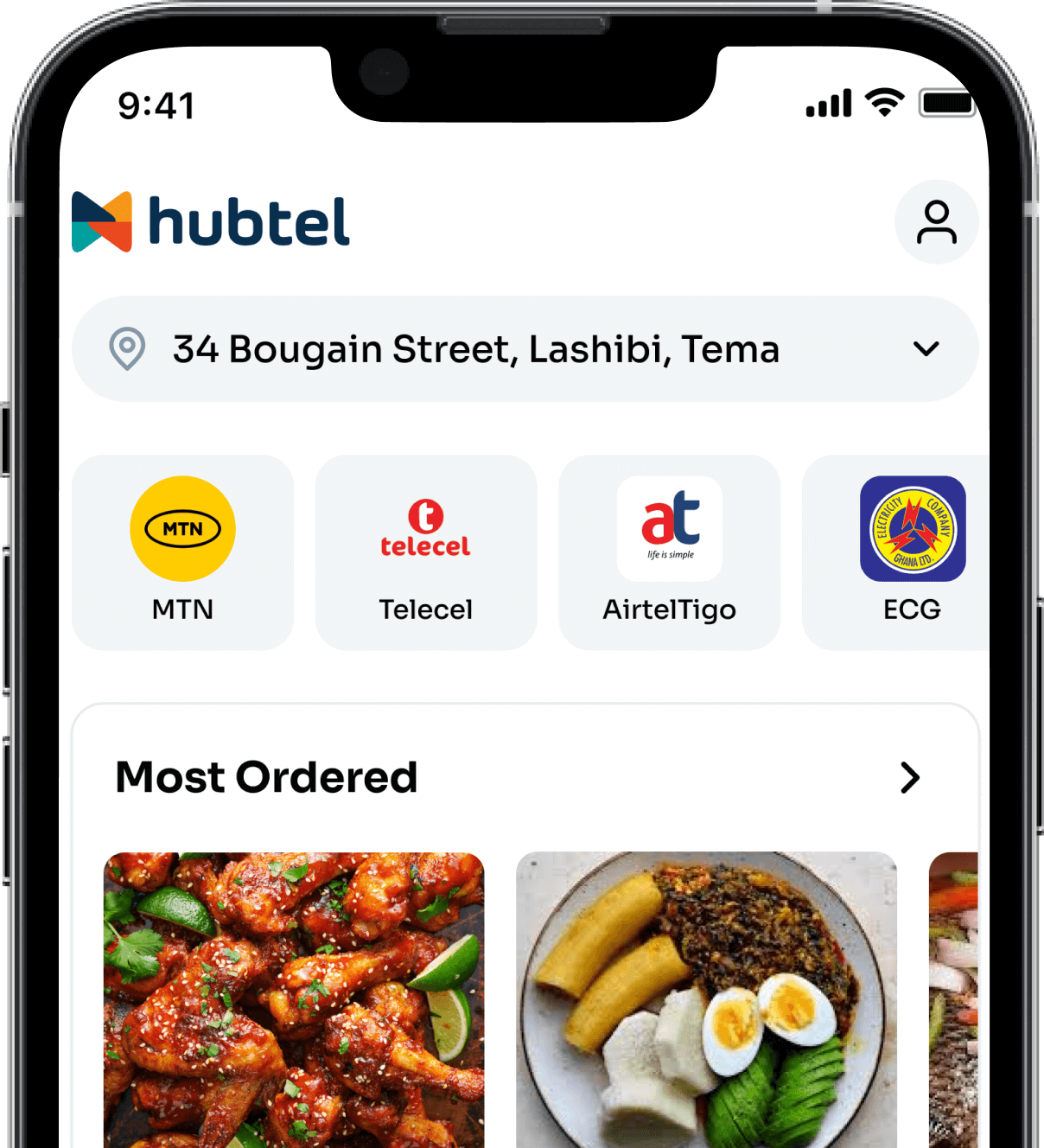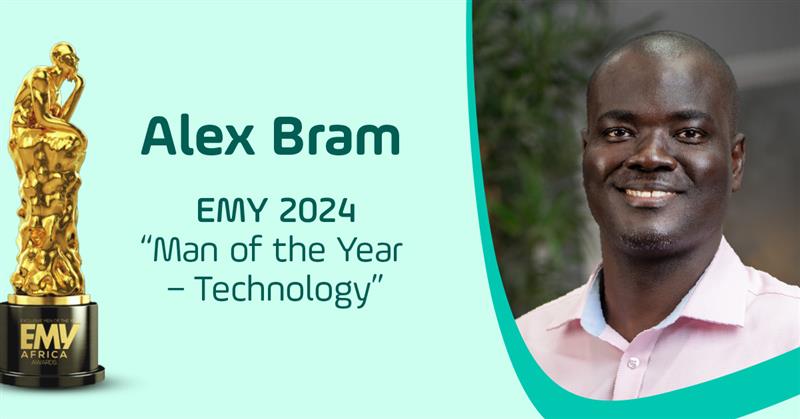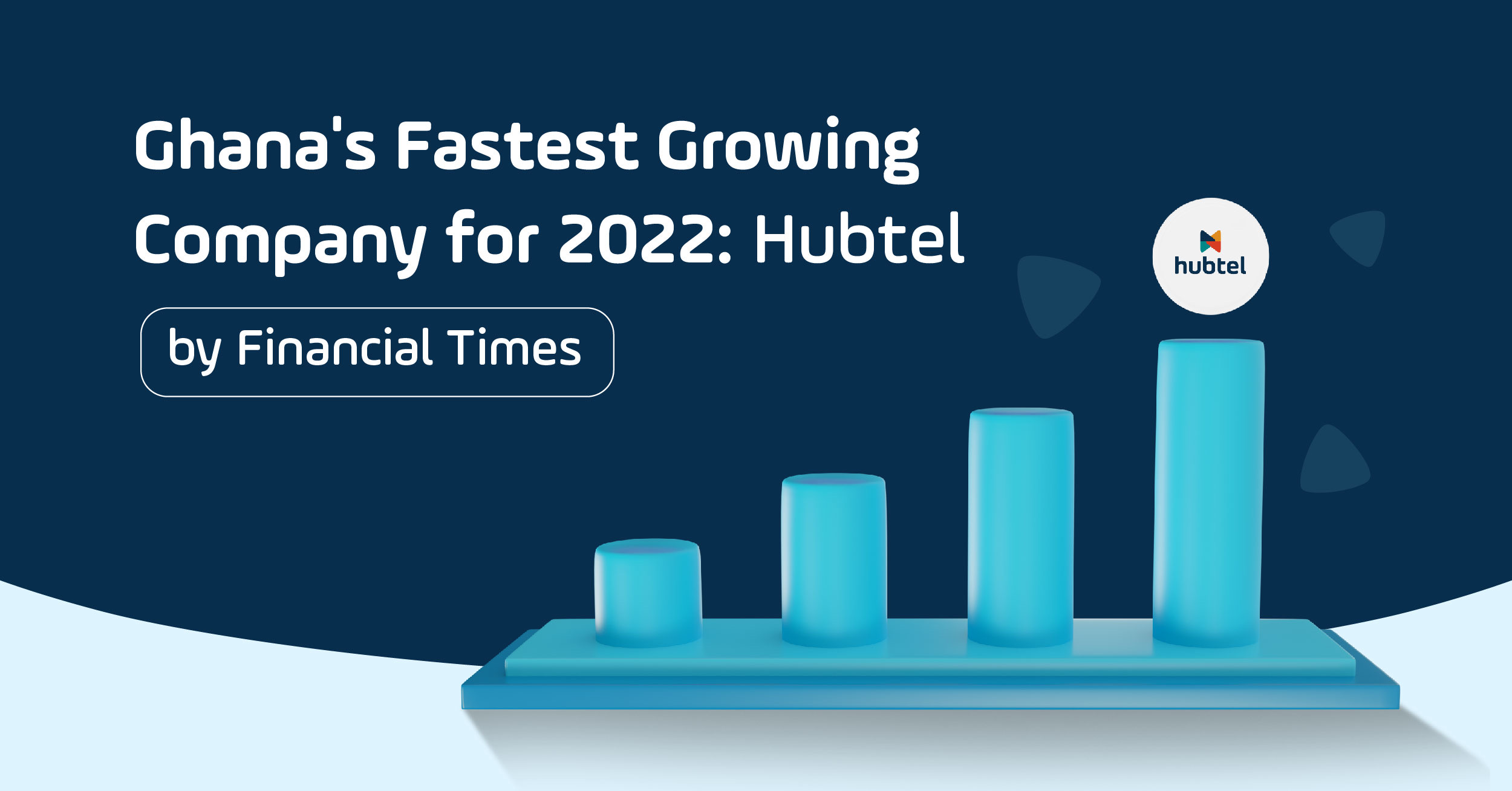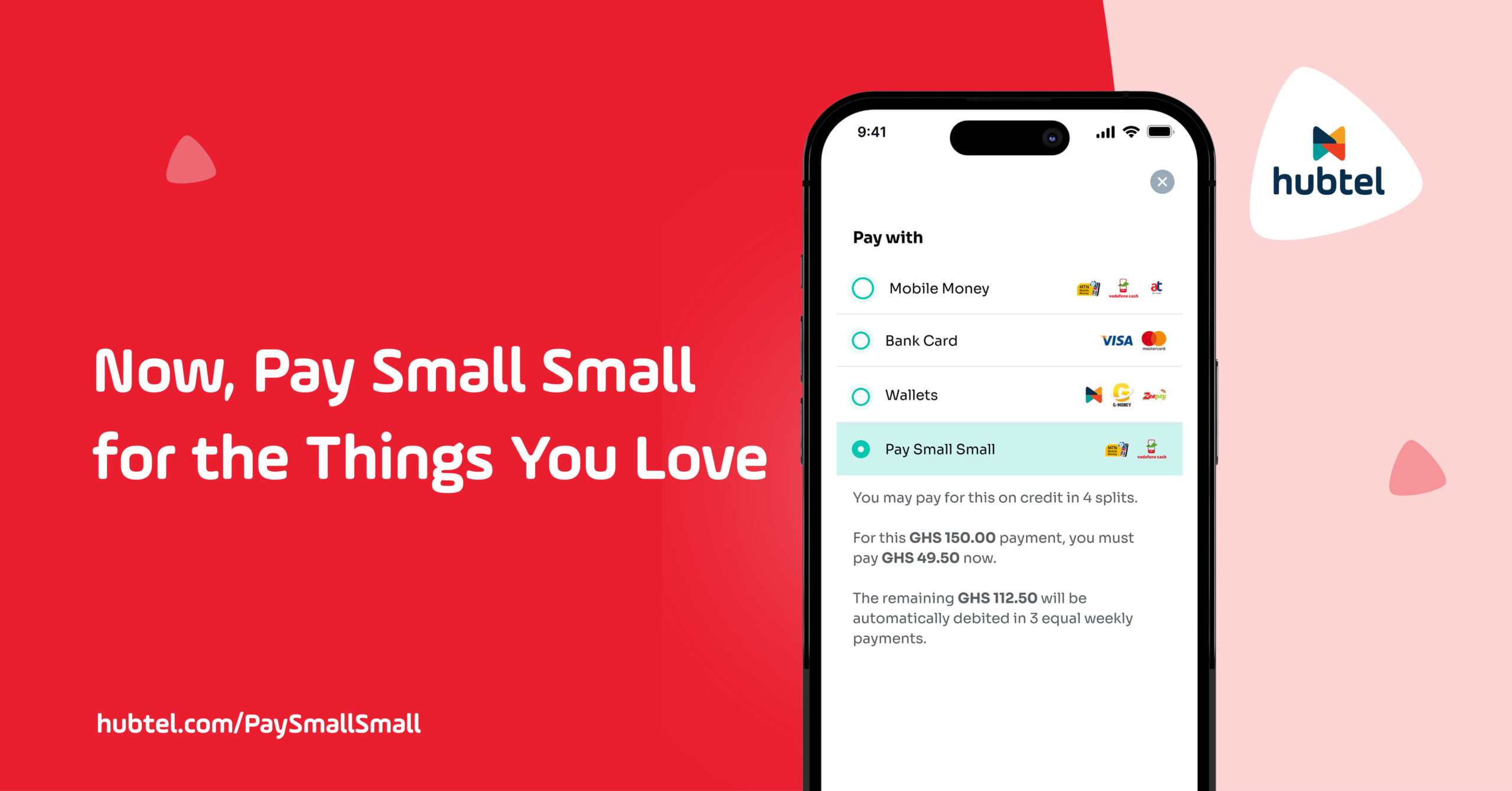Tag: innovation

The New Hubtel Website – A Whole New Experience
Everyone loves new things. Over the past few months, we have been working on a whole new experience for our website, from the constant feedback we received from you. We have taken the time to rebuild our entire product offering nearly from scratch.
Some key changes you will notice include:
- Simplified login with your mobile number, and a One-Time-Password via SMS.
- Clean separation between your personal account with Hubtel and that for businesses you are associated with.
- A free webstore to process online orders and sales directly from your inventory.
- Simpler, less complicated features to access your business dashboard, sales and customer information.
- Simple features to offer gifts and rewards with your customers.
New Means More – But Simple
We will be adding even more features to help your business sell more and delight customers, over the coming weeks and months.
Have a look at the all-new website here: hubtel.com
Got some cool feature(s) you would want us to add? Drop us an email at [email protected]
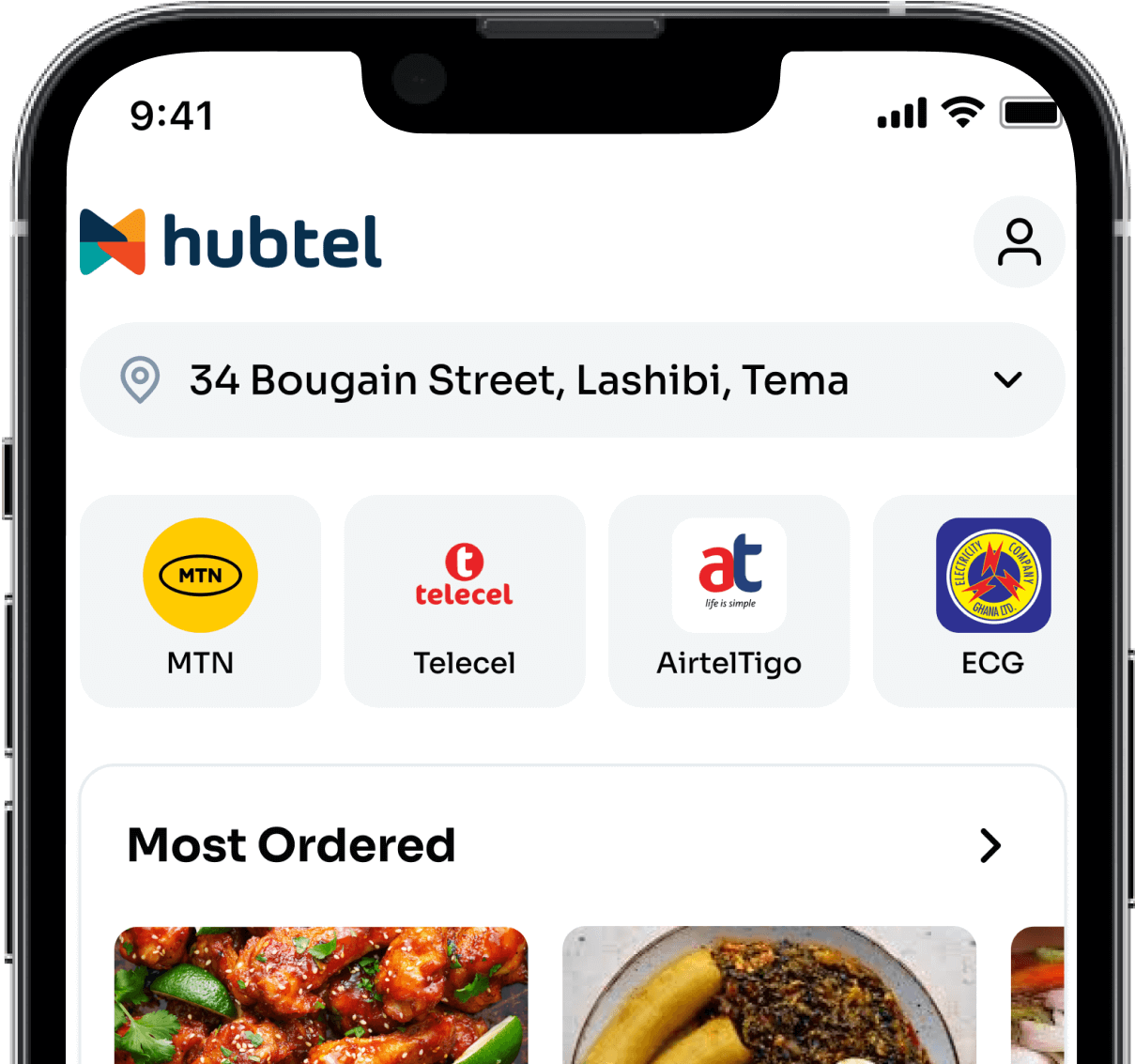
Related
Hubtel Attains ISO 27001:2022 Certification
February 24, 2025| 2 minutes read
Celebrating Leadership: Alex Bram Awarded EMY 2024 "Man of the Year – Technology"
December 31, 2024| 2 minutes read
Hubtel Ranked Ghana's Fastest Growing Company for 2022
May 16, 2024| 2 minutes read
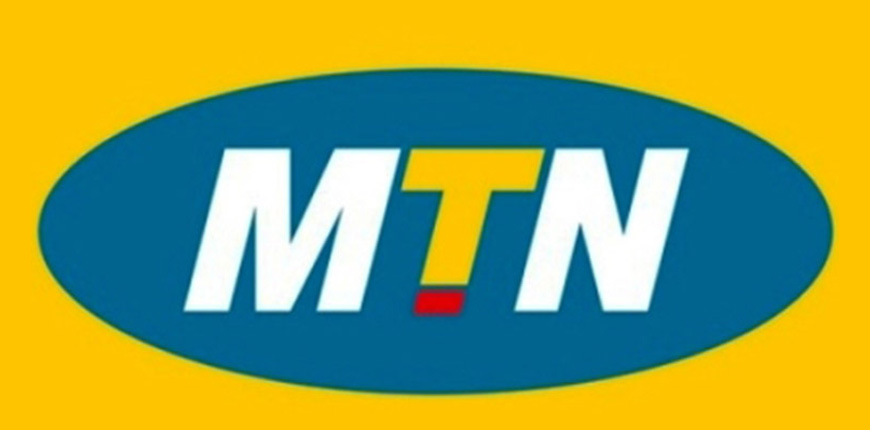
Mobile Telecommunications Network (MTN) hosted this year’s SME Business fair in Takoradi for interaction and networking opportunities for SMEs within the Western Region.
The two-day MTN SME Business Fair, organized under the theme “Accelerating SME growth with smart ICT solutions and partnerships” officially opened on 23rd March 2016 at the Akroma Plaza in Takoradi . The fair brought together about a number of companies including SMSGH Solutions Limited, Fidelity Bank, Association of Ghana Industries (AGI), GCB Bank, TXT Ghana, Glico and other businesses, who engaged participants in various products/ services they offer.
Participants had the opportunity to experience MTN’s ICT offers which includes Corporate Voice Solutions, Internet Messaging Solutions, Data Centre Services and Security Solutions. Other products showcased included MTN’s vehicle tracking devices, modems, routers, and corporate devices.
SMSGH, one of MTN’s leading partners was privileged to be a part of this event and had the opportunity to present to participants one of its products MYtxtBOX. Mr. Emmanuel Offei talked about the various advantages of using the right communication tools for customer engagement, explaining the benefits of using MYtxtBOX, its features and various offerings especially the recently launched MYtxtBOX Email.
Visitors at the SMSGH booth were taken through live demonstrations on various features of MYtxtBOX such as the #HashTag for feedback; real time messaging reports; multimedia messaging; voice messaging; e-mail messaging among others.
The Business Fair was proudly sponsored by MTN in partnership with the Association of Ghana Industries (AGI) and the Western Ghana Chamber of Commerce.

Related
Hubtel Attains ISO 27001:2022 Certification
February 24, 2025| 2 minutes read
Celebrating Leadership: Alex Bram Awarded EMY 2024 "Man of the Year – Technology"
December 31, 2024| 2 minutes read
Hubtel Ranked Ghana's Fastest Growing Company for 2022
May 16, 2024| 2 minutes read

Technological change has always posed a challenge for companies. But, as we saw once again in 2015, it has never occurred as rapidly, or on as large a scale, as today. As innovation sweeps across virtually every sector, from heavy industry to services, it is transforming the competitive landscape, with the most advanced companies – rather than the largest or most established players – coming out on top.
For incumbents, the threat of displacement is very real. The average tenure of a company on the S&P 500 has fallen from 90 years in 1935 to less than 18 years today. Disruptive new players like Uber, which has upended the taxi industry, are tough competitors, often staking out market share by shifting more surplus to consumers. This is part of a broader trend of intensifying competition that, according to recent research from the McKinsey Global Institute, could reduce the global after-tax profit pool from almost 10% of global GDP today to its 1980 level of about 7.9% within a decade.
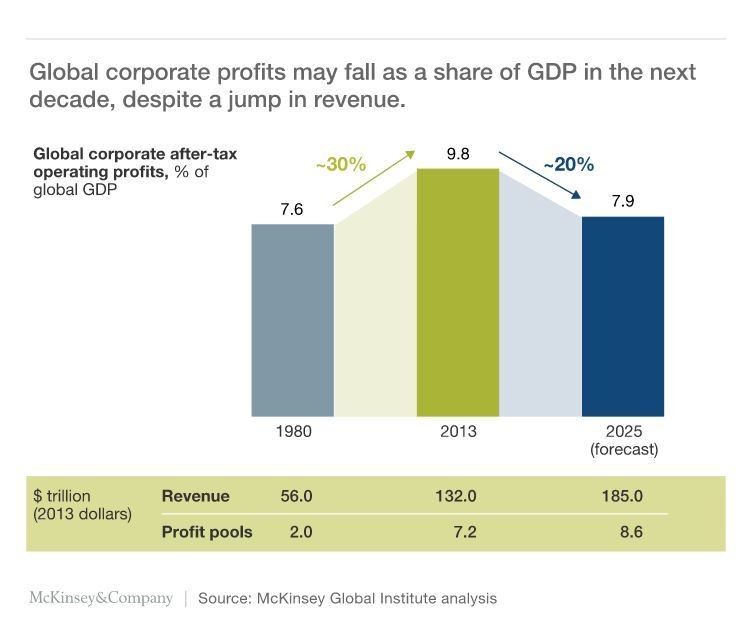
The effect of technology on competition arises largely from the power of digital platforms and network effects. New digital platforms reduce marginal costs (the cost of producing additional units of a good or service) to nearly zero. Adding, say, a Google Maps user carries negligible costs because the service relies on GPS location data that is already stored on a user’s phone. This allows Google to scale incredibly quickly, and then to leverage this scale (and the convenience of having a single platform) to move into adjacent sectors – such as music (Google Play), payment (Google Wallet), and word processing (Google Docs). In this manner, tech firms can quickly come to challenge incumbents in seemingly unrelated industries.
Of course, tech firms are not the only ones innovating. A handful of leading firms in practically every industry are deploying digital technology in increasingly sophisticated ways – and seeing huge benefits. The use of sensors to monitor livestock, for example, has far-reaching implications for the food industry.
But the most digitally advanced sectors show the greatest progress. Indeed, over the last 20 years, profit margins in these tech-infused sectors have grown 2-3 times faster, on average, than in the rest of the economy. Even within the most advanced sectors, there is a yawning gap between the top-performing companies and the rest of the pack. For example, the retail offerings of digitally advanced multinational banks far outstrip those of local credit unions.
As technology transforms business models and processes, it is also changing the way employees work. Recent McKinsey research finds that already-proven technologies could automate as much as 45% of the tasks individuals are currently paid to perform. In the United States alone, that is the equivalent of about $2 trillion in annual wages.
The potential benefits of this transformation for companies extend far beyond cost savings, as workers gain time to pursue more valuable tasks involving critical thinking and creativity. Financial advisers can spend less time analyzing financials and more time developing solutions that meet clients’ needs. Or interior decorators can shift their attention from taking measurements to devising design concepts, meeting with clients, or sourcing materials.
Technology also allows companies to rethink conventional wisdom on organizational design and governance. New information-sharing technologies deliver greater transparency, making organizations more efficient and, in many cases, less hierarchical.
For example, the CEOs of Apple, Inditex (a multinational clothing company), and Zappos (a large online retailer) have adopted broad spans of control (the number of subordinates directly reporting to a manager) that far exceed the traditional model of “one to four to eight.” Haier, the Chinese white goods manufacturer, reorganized its 80,000-person workforce into 2,000 independent units, each responsible for managing its own profits and losses. Since the move, its market capitalization has soared, tripling from 2011 to 2014.
Moreover, digitization allows companies to operate as “platforms,” not structures, and make greater use of resources outside their company. The insurance company Allstate used the crowdsourcing platform Kaggle to invite programmers to develop a new car accident injury algorithm; the eventual “winner” was 271% more accurate than its existing model.
Likewise, China’s DJI became the world’s largest drone manufacturer by focusing on its products’ core technology, while giving away developer kits for free online so that others could build apps. This approach meant that DJI’s drones were equipped with attractive features far earlier than competitors’ products, which relied on in-house app development.
Similar technology-driven innovations in thought processes and business models can be seen across the economy, reflected in changes in companies’ planning processes. Some have begun creating separate business plans with two-month and 20-year views, reallocating their resources more aggressively, and using new analytical techniques to identify, attract, develop, and retain talent.
Technological innovation enables – indeed, requires – companies to boost their agility and thus their competitiveness. That’s why CEOs’ top priorities in 2016 should be to digitize the core components of their business and rethink organizational design and governance processes. Catching this fast-moving – and rapidly growing – “digital wave” is the only way to avoid getting left behind.
Author: Dominic Barton is the global managing director of McKinsey & Company.
Source: weforum.org

Related
Hubtel Attains ISO 27001:2022 Certification
February 24, 2025| 2 minutes read
Celebrating Leadership: Alex Bram Awarded EMY 2024 "Man of the Year – Technology"
December 31, 2024| 2 minutes read
Hubtel Ranked Ghana's Fastest Growing Company for 2022
May 16, 2024| 2 minutes read
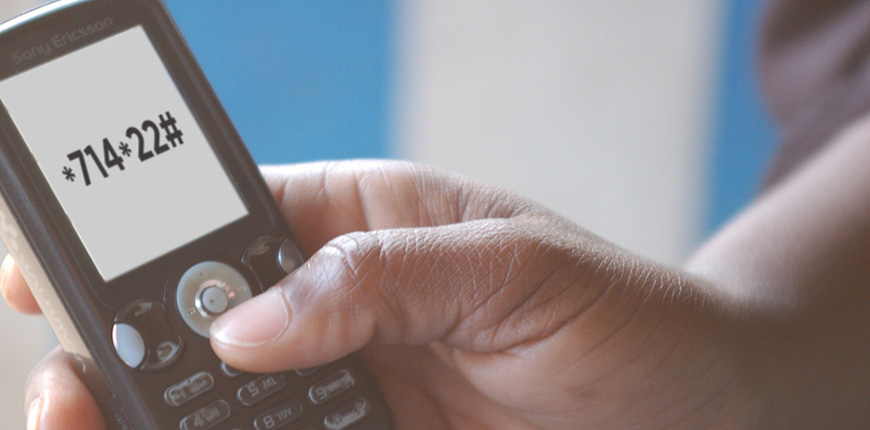
MYtxtBOX Releases New Instant Top-Up Option Via USSD – *714*22#
December 9, 2015 | 2 minutes read
MYtxtBOX has just introduced a new way to top up credits via USSD. This additional top-up option offers users an effective means of purchasing MYtxtBOX credits with mobile money specifically through MTN and Airtel mobile wallets.
MYtxtBOX offers various mobile communication options for brands, businesses, and consumers to engage with their customers and contacts via text, multimedia, and recently voice messaging options.
MYtxtBOX provides a host of options for users to top up credits on their accounts. Before now customers could top-up via 5 main options:
- Direct bank deposit
- Direct mobile money deposit
- Purchasing top-up credits vouchers
- Credit/debit cards
- Payment via MPower
With this new top-up option, users can now perform 2 key functions on the go:
- Check their existing balance
- Top up an amount via Airtel Money or MTN Mobile Money
The top-up process can be completed in 5 simple steps:
- Dial *714*22#.
- Follow the USSD prompts.
- You will receive a payment bill prompt on your phone.
- Enter your mobile money pin.
- Follow the prompt to accept the payment request.
Logging in to MYtxtBOX after this process indicates the new credit balance at the top right corner of the page.
The key benefit here is the ease of the process. It can take place on nearly every phone and does not require internet connectivity. This allows for convenience and a great deal of time, money, and effort is saved. Businesses and consumers can now enjoy the comfort of directly topping up their messaging credits with their mobile devices regardless of location and timing.

Related
Hubtel Attains ISO 27001:2022 Certification
February 24, 2025| 2 minutes read
Celebrating Leadership: Alex Bram Awarded EMY 2024 "Man of the Year – Technology"
December 31, 2024| 2 minutes read
Now, Pay Small Small for the Things You Love
December 23, 2024| 2 minutes read





